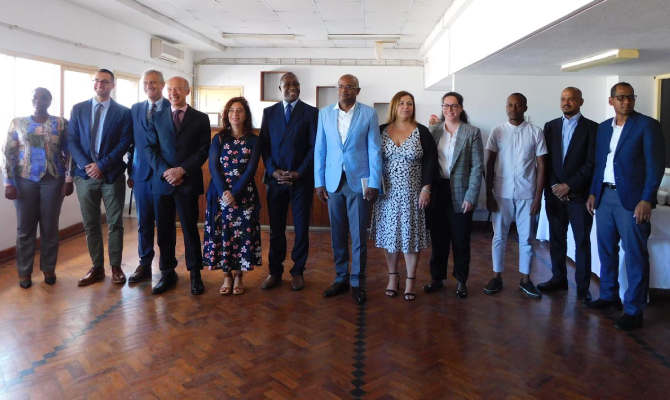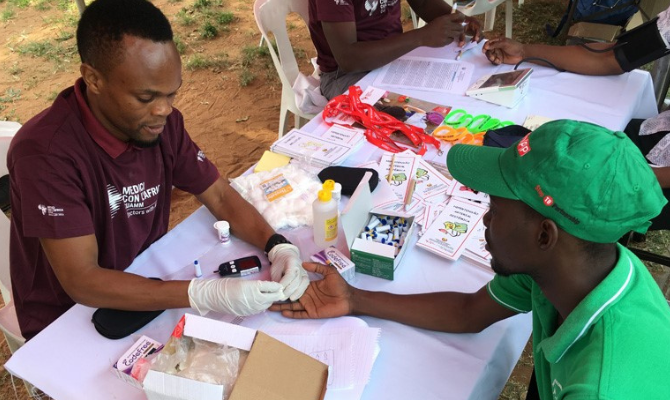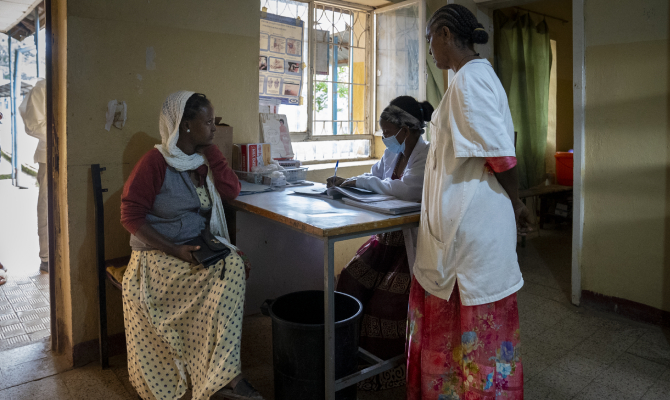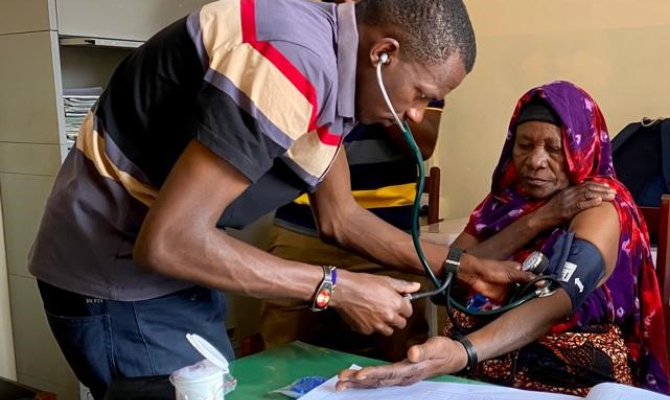An official event was attended on May 6th by the Minister of Health Armindo Thiago, the Ambassador of Italy Hon. Gianni Bardini, representatives from the Italian Agency for Development and Cooperation (AICS) as well as representatives from CUAMM and project partners: Sant’Egidio and Aifo, to present “Prevention and Control of Non-Communicable Diseases” project, an intervention aimed at preventing and controlling non-communicable diseases in Mozambique.
The program, funded by the Italian Agency for Development and Cooperation – AICS and implemented by Doctors with Africa Cuamm in collaboration with Community of Sant’Egidio and Aifo, aims to contribute to the reduction of morbidity, disability, and mortality from the main non-communicable diseases in Mozambique, with particular attention to people with disabilities.
«Despite their impact on people’s health, especially people living with disabilities, NCDs struggle in receiving the right attention from civil society. For this reason we have now included into the program a particular attention to the most vulnerable group of the population» said Gianni Bardini – Italian Ambassador to Mozambique who has later taken the opportunity to mention the partners involved: «NGOs are an added value to the program: the three we are working with have proven expertise in the health sector. We believe the program can be successful and highly effective for the health of the Country».
The intervention, which aims at renewing and consolidating the good results achieved in 14 facilities over the past 4 years, will now reach 20 health units located in three provinces of the country: Maputo, Sofala, and Zambezia. Among the facilities to benefit from the interventions, there are first and second-level facilities and three hospitals which serve as a reference center for patients with disabilities (1 per province). Among the planned activities: awareness raising and screening activities among the vulnearble groups of the population, provision of equipment, materials, and medicines, and, above all, training and technical assistance to medical and healthcare personnel to promote both awareness on NCDs risk factors and the follow-up of identified patients. Given their high prevalence and mortality, the intervention will focus on arterial hypertension, diabetes (prevalence rates of 39% and 7.4% respectively), and cervical cancer (mortality rate of 64%) and it aims to place prevention at the center of the intervention strategy.
NCDs are currently among the leading causes of death worldwide: cardiovascular and respiratory diseases, cancer, and diabetes kill 41 million people worldwide each year. Their prevalence is increasingly on the rise in sub-Saharan Africa as well: it is estimated that by 2030 the incidence of non-communicable diseases will surpass communicable diseases due to risk factors such as unhealthy diets, air pollution, and low physical activity.
«Risk factors and unhealthy habits are key in the incidence of NCDs, for this reason it is pivotal to promote good habits and a healthy lifestyle as well as ensure access to quality healthcare services. The NCDs burden is nowadays a global health issue in Mozambique and it must be therefore address by both individuals and civil society as a whole» said Armindo Thiago – Minister of Health.
Data from 2015 show that the overall disease burden (Global Burden of Diseases) in Mozambique is still primarily determined by communicable diseases (CDs), however, NCDs account for more than 1/3 of the overall disease burden in the country. According to these data, cardiovascular diseases in the country are becoming major causes of death, following HIV, malaria, TB, and neonatal complications which remain the top killers. The National Program for the Control of Non-Communicable Diseases has given top priority, in its current strategic plan, to controlling risk factors for chronic diseases, particularly hypertension, diabetes, and cancer, considering them public health issues in Mozambique due to their high prevalence and high mortality rates.
Today, within the National Health System (NHS), organized into four levels of care, there are few structured activities for managing NCDs, with a significant weakness especially at the primary level. The weakness of the health information system (SIS-MA), which struggles to collect routine data on NCDs, makes evidence-based planning and resource management efficiency difficult. Among the major barriers in NCDs response it is also the lack of awareness among both communities and healthcare personnel about the epidemiological importance of hypertension and diabetes.
Concerning the current struggles, Minister Thiago has invited to accept the challenge of digitalizing the health information system:
«It is time for health policy to be guided by evidence based results. To digitalize the health system and give up on traditional paper is a priority for us. The program will facilitate access to and emprove the quality of health care to which everyone is invited to participate. In addition, we want this to be not merely a project but a long-term program with a sustainable impact. We therefore thank AICS and the Italian Ambassador for recognizing health as a priority, together we will keep working for the health of Mozambique».





